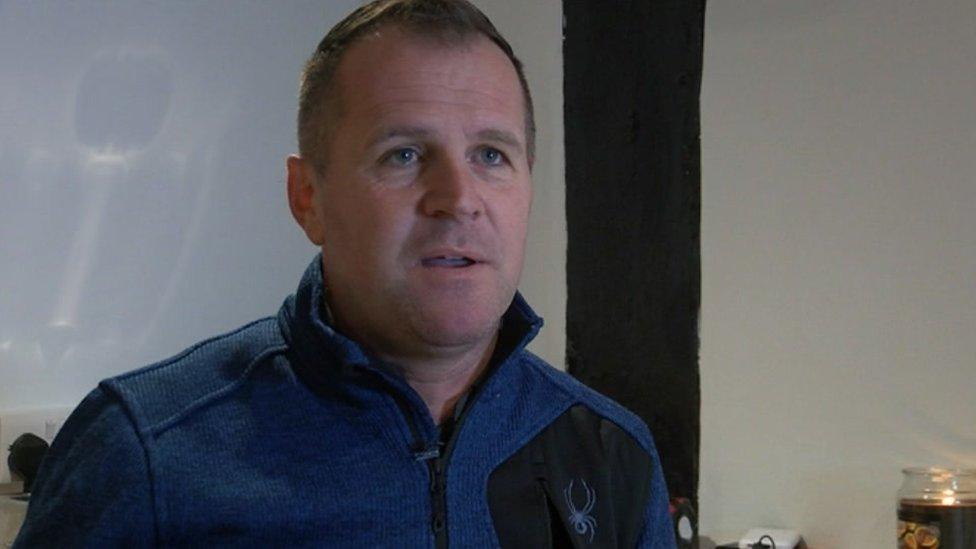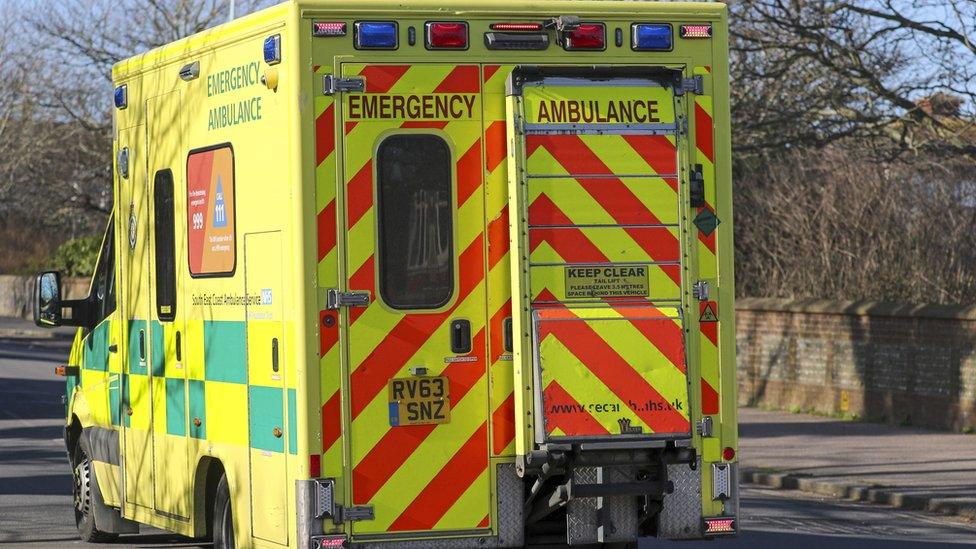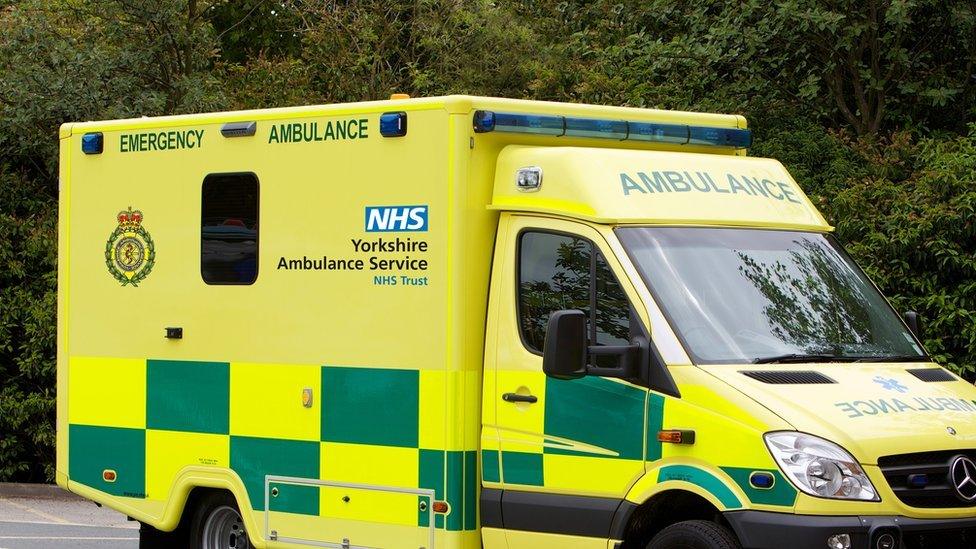Maidstone man, 50, in 40-minute heart attack ambulance wait
- Published

Phil Moore said the heart attack "came on with no warning"
A man had to wait 40 minutes for an ambulance after suffering a heart attack.
Phil Moore, 50, from near Maidstone, thought he was going to die after suffering severe chest pains in a supermarket car park.
The South East Coast Ambulance Service (Secamb) said it recognised "there remains much for us to do to improve our response times."
The British Heart Foundation said lives would be lost if these delays continue.
Mr Moore said: "This was an acute heart attack, it came on with no warning, it came on very suddenly and very strong.
The father-of-three fought hard to stay conscious while he waited for medical assistance. After calling 999 for a second time after 20 minutes, they told him help was on its way.
Mr Moore said: "I don't think an ambulance was originally dispatched from the first call.
"I think the triage was saying 'conscious' and the second call was when they realised half of the questions I probably wasn't answering."
40 minutes passed until paramedics arrived and he was taken to the William Harvey Hospital.
Mr Moore now has a stent fitted into his artery. He is a non-drinking, non-smoking vegetarian so doctors are unsure why he suffered a heart attack. A keen cyclist, he thinks his fitness is what kept him alive while he waited for medical assistance.

Secamb's average waiting time for category two calls, which include suspected heart attacks, of 35 minutes 28 seconds
Kate Cheema from the British Heart Foundation said: "Every single minute when someone has a suspected heart attack or stroke symptoms makes a difference. You might hear the term 'time is muscle' when it comes to heart care.
"It's a life-threatening medical emergency and that's the reason you have such a tight target response time for these calls.
A study carried out by the British Heart Foundation found that for Secamb the average waiting time for category two calls, which include suspected heart attacks and strokes, is 35 minutes 28 seconds.
This is lower than the national average of 48 minutes but still almost double the government target.
'Committed to addressing this'
A Secamb spokesperson said: "We are very sorry whenever it takes longer than is expected to attend a call and would invite Mr Moore to contact us directly so we can look into his concerns in more detail.
"We recognise there remains much for us to do to improve our response times and are committed to addressing this.
"We remain very busy and our staff and volunteers are working hard to reach everyone who needs us as quickly as possible while prioritising our response to our most seriously ill and injured patients."

Follow BBC South East on Facebook, external, on Twitter, external, and on Instagram, external. Send your story ideas to southeasttoday@bbc.co.uk, external.
- Published14 October 2022
